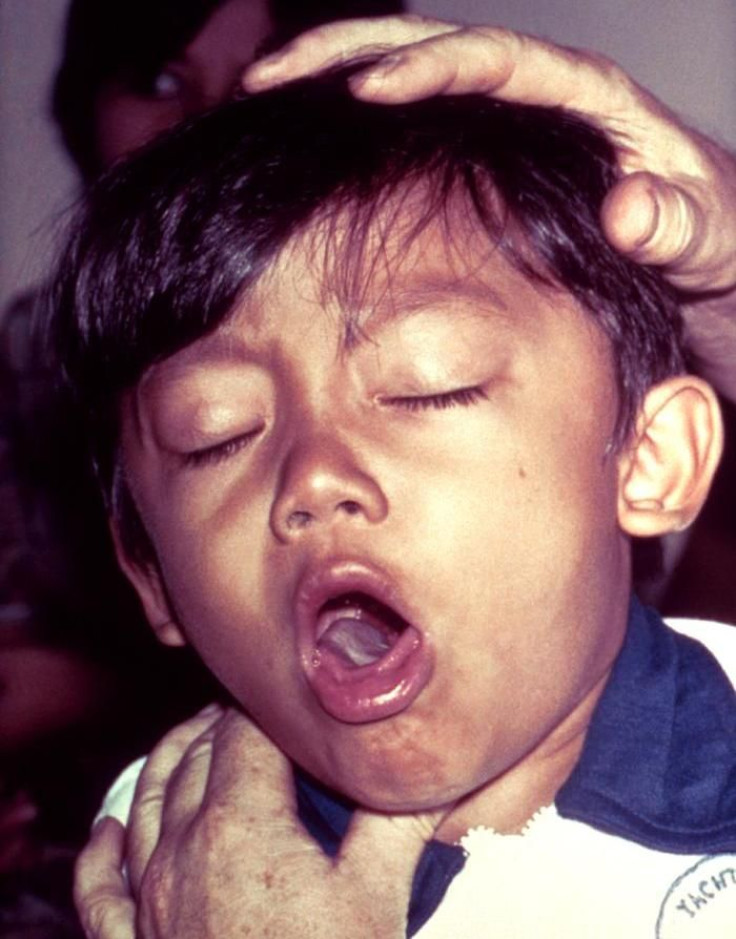More Kids Get Whooping Cough As Parents Forgo Vaccines

Some New York parents have either become more religious or more wary about the effects of vaccinations, or both. A new study has found that almost twice as many parents asked for religious exemptions from vaccinating their kids in 2011 compared to 12 years earlier. Not surprisingly, the rise in exemptions is paralleled by a rise in cases of whooping cough.
New York State's education department allows children to attend school without the required vaccinations if the family has religious reasons for abstaining. Researchers found that while exemptions rose, so did incidences of whooping cough (pertussis), according to HealthDay News.
The study found that counties with exemption rates of one percent or more also reported higher rates of whooping cough in vaccinated and unvaccinated children. The counties with higher exemption rates had an average of 33 cases per 100,000 children sick with whooping cough, compared to 20 cases per 100,000 children in those counties with fewer exemptions.
The rate of exemptions rose from 0.23 percent to 0.45 percent between 2000 and 2011 statewide. Locally, some counties had exemption rates rise as high 5.58 percent.
Meanwhile, the average annual rates of whooping cough ranged from eight cases per 100,000 children to 124 per 100,000 children, depending on the county. But the study found that there were 302 cases per 100,000 unvaccinated children, while there were only 22 cases per 100,000 vaccinated children.
The exemptions include vaccinations from diphtheria, tetanus, whooping cough, polio, hepatitis B, measles, mumps, rubella, and varicella (chicken pox).
Although the researchers did not establish any causes behind the rise in exemptions, they believe it could be because the parents are wary about vaccines.
"It's troubling from an ethical standpoint," said Dr. Jana Shaw, an assistant professor of pediatrics at SUNY Upstate Medical University and senior author of the study. "If you have gotten an exemption for your child, not only are they at high risk of [whooping cough], but you're putting other children at risk - even those who have been vaccinated."
The researchers also suggest that the number of whooping cough cases has risen because the new vaccine doesn't work as long as the old vaccine, which was used since the 1940s. The vaccine, which contained the whole pertussis bacteria, was phased out in the 1990s because of an increase in babies developing side effects, such as fever.
"But the price we've paid to get more safety is that we have less effectiveness," Dr. H. Cody Meissner, a pediatric infectious disease specialist from Tufts University School of Medicine, told Reuters. It doesn't protect as well against pertussis."
Whooping cough is a highly contagious respiratory disease, known for violent coughing, which makes it hard to breathe. It gets its name because the person coughing would need to take deep breaths, which come out as a "whooping" sound. In 2011, 18,719 cases were reported in the US, however, there are many more that are undiagnosed, according to the Centers for Disease Control and Prevention (CDC).
Source:
Shaw J, Imdad A, Tserenpuntsag B, et al. Religious Exemptions for Immunization and Risk of Pertussis in New York State, 2000-2011. Pediatrics. June 2013.



























